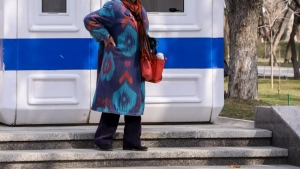Applicants have the right to choose five universities

President Shavkat Mirziyoyev announced a new initiative aimed at ensuring fairness and equal opportunities in the education sector. This was reported by Zamin.uz.
From now on, applicants will have the right to choose five universities when applying for higher education institutions. If they are unable to enter any of the five universities they selected, and their scores match an available spot in another university, the rector of that institution may accept them based on a contract.
This new system will foster healthy competition between state and private educational institutions. Additionally, the powers of rectors will be expanded, and their responsibilities will be increased.
Rectors will be required to defend the annual work plans of their appointed deputies in the university council. The evaluation system currently used at the New Uzbekistan University will now be implemented across all universities.
The funding of universities will be based on the scores they accumulate. Scores will be awarded based on employment rates, scientific research, articles, and grants.
For example, if Karshi Technical University scores 85 percent, it will receive an additional 20 percent bonus from the state budget, while if it scores less than 56 percent, the funding will be reduced. Universities in social and scientific fields will be evaluated based on special criteria.
The president instructed specialists to revise the ranking criteria. In the new system, self-employed graduates will not be considered in employment placements.
Additionally, rectors and vice-rectors will undergo special training courses, and the best candidates will be sent to Harvard University for further qualification. Rectors will be given the authority to independently determine the amount of super contracts, freely allocate professors and teachers according to staff needs, and manage their own budgets.
Thus, significant reforms have begun in the New Uzbekistan education system, creating new opportunities not only for youth but also for the leaders of educational institutions (source: zamin.uz)







